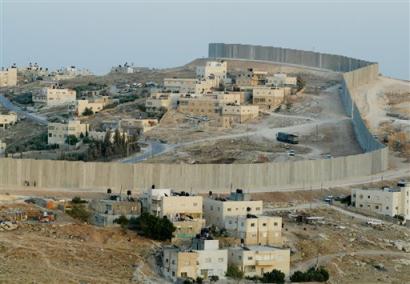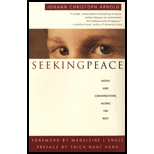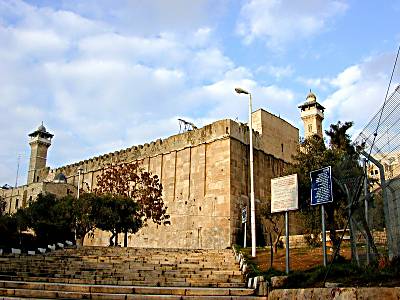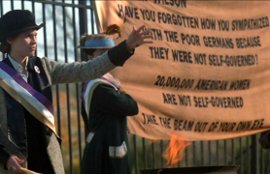
How defense hinders peace
The second stage in Bennett’s model of intercultural sensitivity is defense. As someone moves from a lack of awareness of difference (the denial stage, see http://salemshalom.blogspot.com/2011/02/how-ethnocentrism-hinders-peace-denial.html) into more contact with cultural difference, the initial experience and reaction is often negative. Differences, at this stage, are perceived as threatening to one’s sense of reality and to one’s identity, and a common reaction is to try to preserve the absoluteness of one’s worldview, in the fact of the growing awareness of difference.
Defense is characterized by polarization (“us” vs. “them”), and by a positive stereotyping of one’s own culture and identity, and a negative stereotyping of the other. Bennett refers to the negative view of the other as denigration – negative stereotyping based on race, religion, age, gender, or any other assumed indicator of difference. He refers to the positive sense of self as superiority – positive evaluation of one’s own status, with the idea that everything has evolved and will evolve in our direction (the sense of ourselves as “civilized,” etc.).
Note that defense is the predominant orientation of nation-building and nationalism. And that it deepens in times of conflict between peoples, e.g., the Palestinian-Israeli conflict, the conflict between Bosnians, Serbs and Croatians in the former Yugoslavia
Note also that at the defense stage, the "knowledge" of the other is shallow and superficial. There is an Arab proverb, "he who is ignorant of something, is its enemy." We can most easily negatively stereotype and believe the worst about others, when we do not know them, when we do not have personal relationship with them. Most of the Americans that I know, that are most suspicious of Muslims and of Islam, do not have friendships, or even basic relationships, with Muslims.
Note also that at the defense stage, the "knowledge" of the other is shallow and superficial. There is an Arab proverb, "he who is ignorant of something, is its enemy." We can most easily negatively stereotype and believe the worst about others, when we do not know them, when we do not have personal relationship with them. Most of the Americans that I know, that are most suspicious of Muslims and of Islam, do not have friendships, or even basic relationships, with Muslims.
Bennett notes a variation on the polarization of the defense stage, which he refers to as reversal – the denigration of one’s own culture, and assumption of the superiority of a different culture. Although this may look more positive toward another culture than defense normally does, it is “only changing the center of ethnocentrism.” Reversal is common for people who go abroad and begin adapting to another culture, like Peace Corps volunteers. It can also occur for anyone who gets involved with another group of people and takes up “their cause.”
It is probably fairly self-evident why and how being at the defense stage, hinders peace. Again, peace requires relationship, building something positive together, coexistence. A sense of one’s own superiority, while denigrating the different other, is a serious roadblock to peace. Whether it is Israeli Jews thinking of Palestinians as “dirty Arabs,” “terrorists,” etc., or Americans wondering “what’s wrong with those Muslims, that they are always so violent,” the negative stereotyping of others – especially in situations of conflict, in which peacemaking is most necessary – makes it hard to move toward peace. And the danger, in conflict situations, is that all parties in the conflict will continue on the “downward” slide of defense, toward villainization and dehumanization of the other. The end of this ugly road is the possibility of doing anything to the other, including ethnic cleansing and extermination, with no twinge of conscience.
We cannot live in a state of feeling threatened by those who are different from us, and find peace. We cannot allow ourselves to dwell in “us” / “them” thinking, where we are always criticizing “those people,” and find peace. We cannot take pride in our own superiority, and denigrate those different others, and find peace. And most obviously, we cannot embrace the demonization and dehumanization of others, and find peace.
If we want peace, we must move beyond the ethnocentric stage of defense.
(Coming next: how minimization hinders peace)
*For full treatment of Bennett’s model, see
Bennett, Milton J., “Towards Ethnorelativism: A Developmental Model of Intercultural Sensitivity.” In Paige, R.M. (Ed). (1993) Education for the Intercultural Experience (2nd ed., p. 21-71). Yarmouth , ME
Bennett, Milton J., “Becoming Interculturally Competent.” In Wurzel, Jaime S., ed., Toward multiculturalism: A reader in multicultural education (2nd ed., pp. 62-77). Newton , MA























